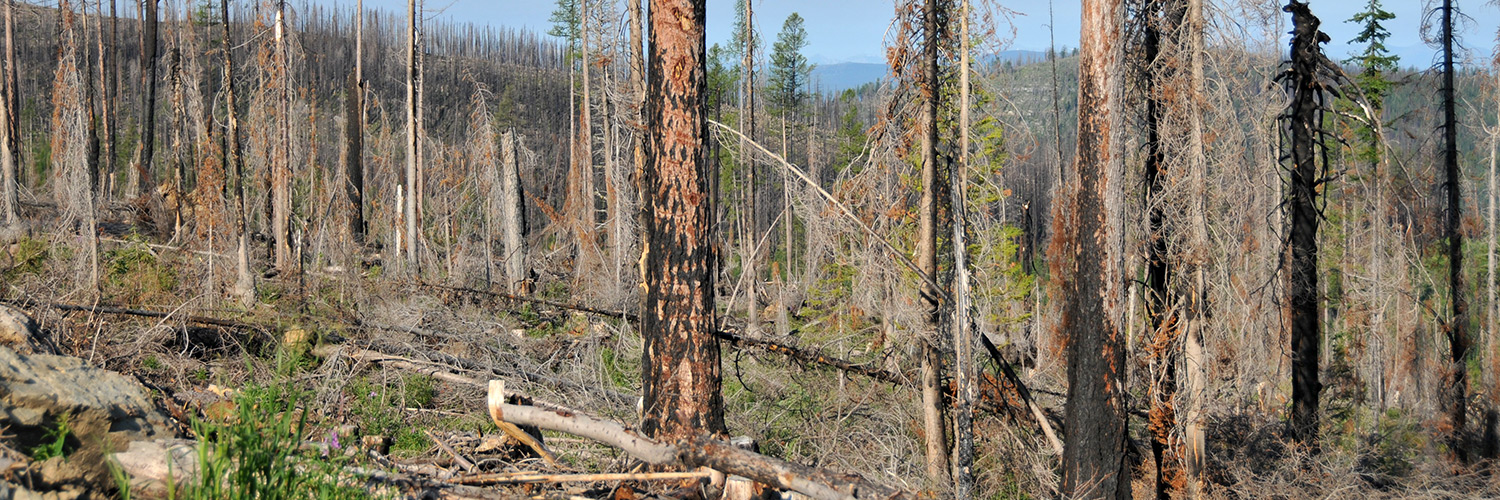Dr. Karen E. Hodges | Professor, Conservation Biology
People and Projects
Supervision Philosophy
I enjoy working with people at BSc, MSc, PhD, and postdoctoral levels. I value having a diverse lab group and I explicitly value mentoring people from groups that are under-represented in ecology and conservation biology.
In my lab, I cultivate an atmosphere in which people feel free to explore ideas and varied approaches to problems. I encourage students to develop their own projects as much as possible within the constraints of time, logistics, and funding. I expect graduate students to publish their work in peer-reviewed journals and to present work at national or international conferences. Undergraduate Honours’ students are also encouraged to undertake projects that may result in publications. I expect students in my lab to interact positively with each other, and I foster regular times to meet to discuss current research. I also value outreach beyond the scientific community, so students who wish to interact with the media, government agencies, non-profits, schools, industry, and land-owners are encouraged to do so. Indeed, many of our research projects require – and strongly benefit from – such interactions. I also expect my students to apply for fellowships, grants-in-aid-of-research, and awards; many of my students have succeeded in these applications.
Current graduate students
Siobhan Darlington, PhD student (co-supervised). Cougar ecology in southern British Columbia. Study areas: Southcentral and southeastern BC (Okanagan, Boundary, and Kootenays).
Brooklyn Maher, MSc student. Effects of partial logging on a predator guild. Study area: Burns Lake Community Forest, BC.
Megan Buers, MSc student. Western Screech-Owls in a changing climate. Study area: Okanagan Valley, BC.
Steffani Singh, MSc student. Owl habitat suitability in post-fire landscapes. Study area: Okanagan Valley, BC.
Christine Phelan, MSc student. Canada lynx movement in post-fire landscapes in winter. Study area: North Cascades, Washington.
Thanks to our funders
None of this work would be possible without our funders. I and my students are very grateful to acknowledge NSERC, UBC Okanagan, the Upland Bird Society, SYLVIS, MITACS, Wildlife Conservation Society of Canada, and Environment and Climate Change Canada. We are glad to recognize the Habitat Conservation Trust Foundation and anglers, hunters, trappers and guides who contribute to the Trust, for making a significant financial contribution to support the fire-related marten and small mammal research in BC, as well as our newer projects on predators in logged landscapes, screech owls in riparian heat refugia, and owls in burned landscapes. We gratefully acknowledge the Forest Enhancement Society of BC for supporting our work on small mammals and marten in relation to wildfire, predators in relation to different forest harvest practices, and screech owls in possible climate refugia. We also gratefully acknowledge Seattle City Light for funding the Washington marten research.
Former lab members
Logan Volkmann, PhD. 2021. Habitat selection by Pacific marten (Martes caurina) and other carnivores after wildfire and post-fire salvage logging. Study areas: near Williams Lake, BC, and Okanogan National Forest, northern Washington.
Leah Rensel, MSc. 2021. (Co-supervisor: Dr. C. Lausen, Wildlife Conservation Society). Roost selection and social organization of Myotis in maternity colonies. Study Area: Metro Vancouver region, BC.
Jennifer Meineke, MSc. 2021. Effects of biosolids on a grassland community of rodents and birds of prey in British Columbia. Study Area: OK Ranch, near Jesmond, BC.
Angelina Kelly, MSc. 2021. Small mammals and mesomammals in a post-fire and salvage-logged landscape. Study area: near Williams Lake, BC
Kristen Mancuso, PhD. 2020. (co-supervisor: Dr. C. Bishop, Environment and Climate Change Canada) Migration ecology of yellow-breasted chats. Study areas: south central BC, southern Oregon, Mexico.
Kirstie Lawson, MSc. 2018. Habitat selection and diet of grouse on a biosolids-remediated ranch in British Columbia. Study Area: OK Ranch, near Jesmond, BC.
TJ Gooliaff, MSc. 2017. Spatiotemporal patterns and reliability of bobcat and Canada Lynx occurrence records in British Columbia.
Jenna Hutchen, MSc. 2017. Snowshoe hare responses post-fire. Study areas: various burned and unburned areas in southcentral British Columbia.
Carmen Vanbianchi, MSc. 2015. Landscape connectivity of Canada lynx in relation to recent forest fires in Washington. Study area: north-central Washington.
Melissa Tesche, MSc. 2014. Demographic responses of painted turtles to landscape patterns in B.C.’s Okanagan Valley. Study area: Okanagan Valley, BC.
Roberta Newbury, PhD. 2013. Behavioral ecology of the bobcat in a region with deep winter snows. Study area: Flathead National Forest, Montana.
Ellen Cheng, PhD. 2010 at the University of Montana (co-supervised with Dr. L.S. Mills). Large-scale patterns in gene flow and synchrony in snowshoe hares. Study area: Glacier National Park, Montana.
Tanis Gieselman, M.Sc. 2010 at UBC Vancouver (co-supervisor, Dr. Mark Vellend, Botany). Edge effects in southern Okanagan grasslands adjacent to human development. Study area: south Okanagan Valley, BC.
Natalie Melaschenko, MSc. 2010. Small mammals responding to cheatgrass at a range periphery: movement and population dynamics. Study area: south Okanagan Valley, BC.
Katy (White) Williams, MSc. 2008. (co-supervisor: Dr. C. Bishop, Environment Canada). Great Basin Gophersnake movement and habitat use in the Okanagan Valley, B.C. Study area: north and south Okanagan Valley, BC.
Emily Herdman, Postdoctoral Fellow, 2008. Evaluating the conservation value of peripheral populations, and the demography and movements of the Nuttall’s cottontail (Sylvilagus nuttallii).
Laura Prugh, Postdoctoral Fellow, 2006. Meta-analyses of causes and correlates of species endangerment in Canada and the effects of habitat fragmentation across taxa on a global scale.
Carly (Walker) Lewis, MSc., University of Montana, 2005 (co-supervisor, Dr. L.S. Mills). Snowshoe hare population dynamics and movements in a fragmented landscape. Study area: Okanogan National Forest, Washington.
Leanna Warman, Research Associate, 2005. Systematic reserve selection and biodiversity mapping in British Columbia.

